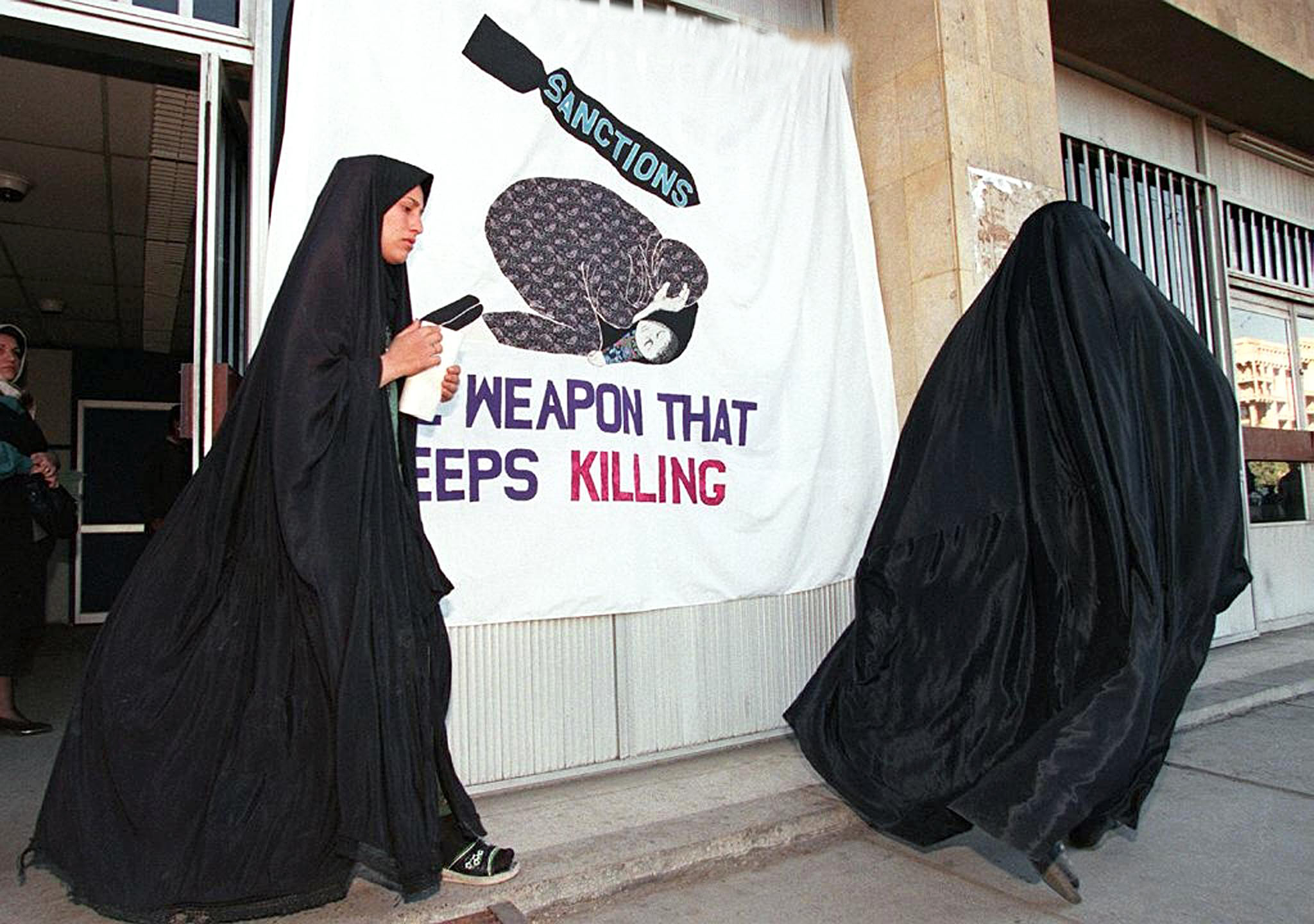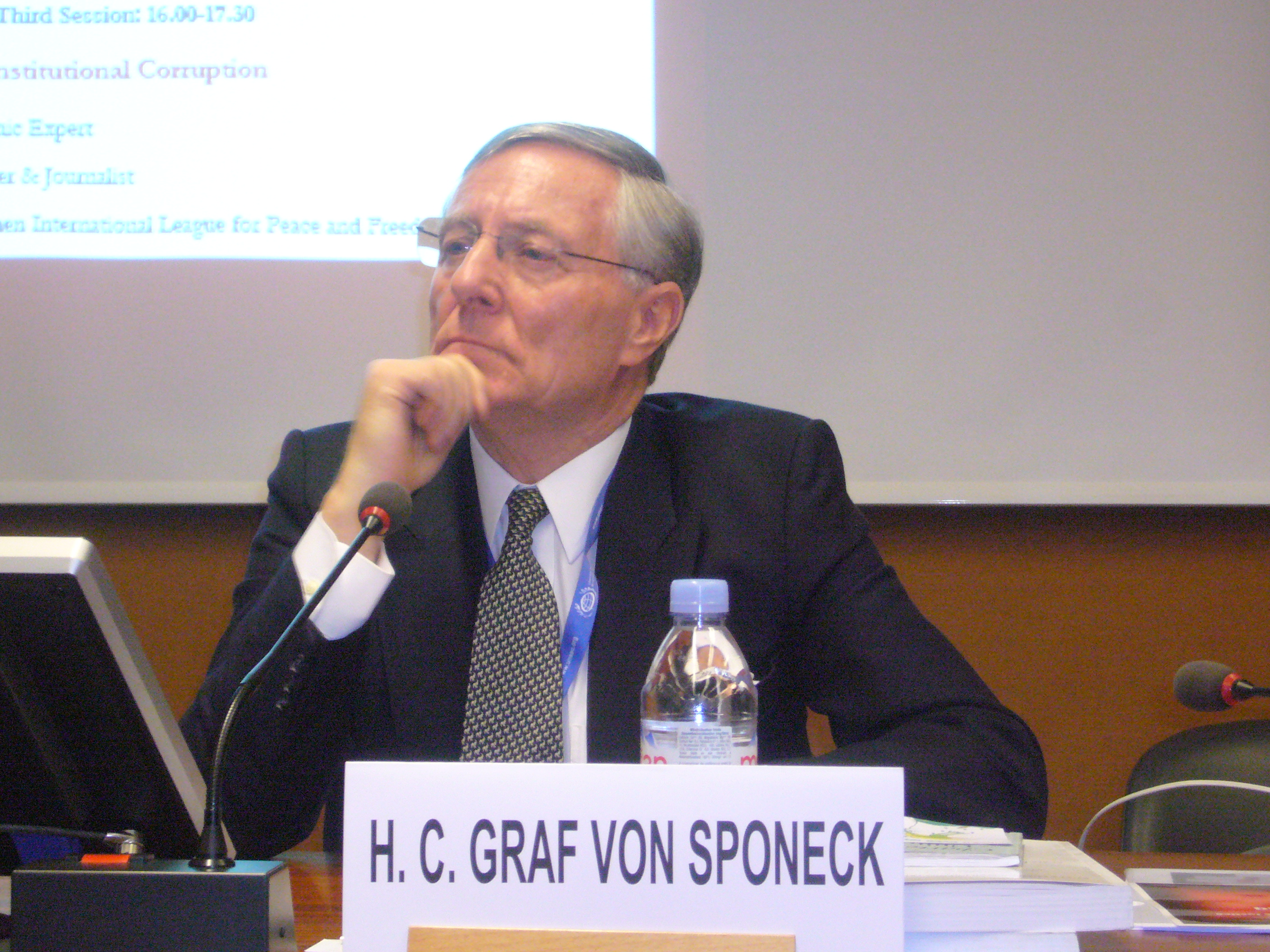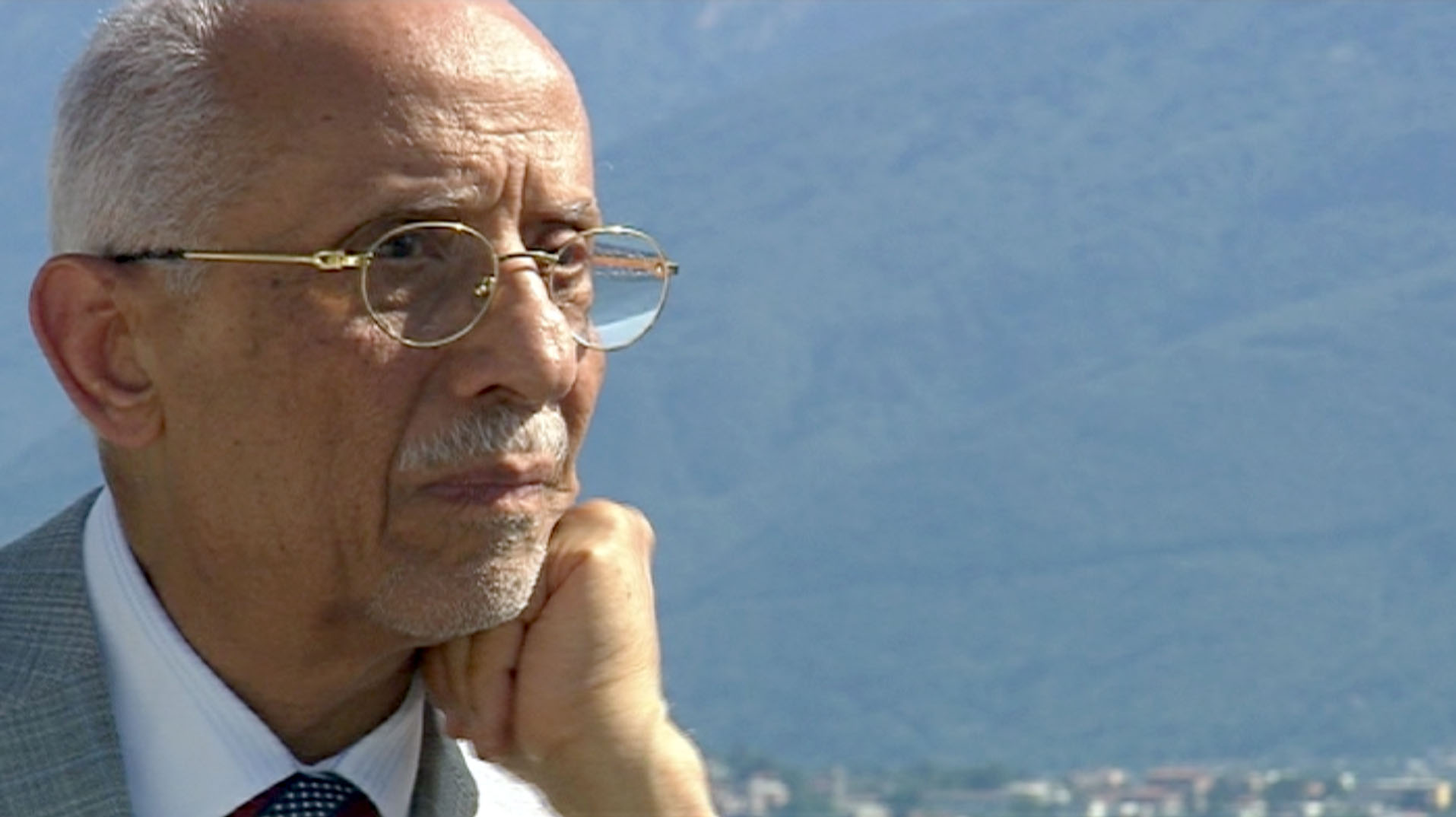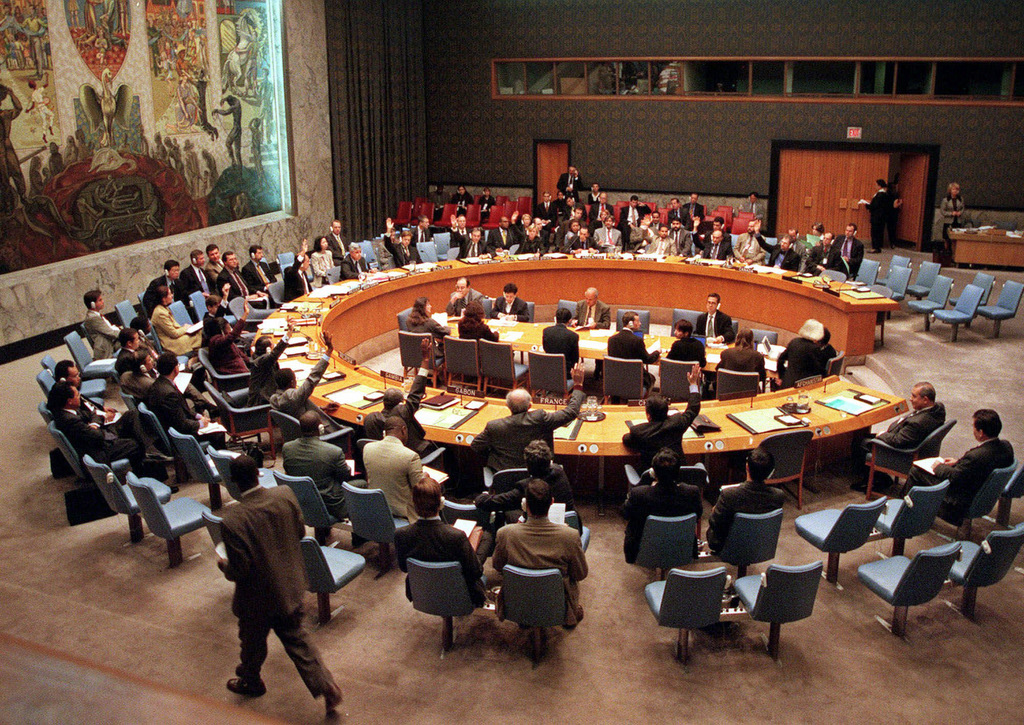Measuring the real impact of sanctions

Since the end of the Cold War the United Nations Security Council has increasingly used sanctions as a diplomatic tool. The Swiss back ‘smart’ targeted sanctions but their real impact remains unclear. New research should shed light on their effects.
Although international sanctions, or embargos, were written into the United Nations charter in 1945, they were used more and more from the Cold War era onwards against countries such as Iraq, Iran, Libya and Rwanda among others.
Switzerland’s Secretariat of Economic Affairs (Seco), the federal office that oversees such questions, defines sanctions as the “imposition of restrictive (economic) measures in order to produce certain political effects”.
But, as Seco spokeswoman Marie Avet admits, it is hard to determine which embargos have been the most effective in achieving their objectives.
“The UN Security Council and individual states decide on sanctions to address specific issues, such as terrorism, human rights violations, or the gross neglect of the rule of law or fundamental democratic principles,” said Avet.
While it is true that some sanction regimes receive greater media coverage than others, it is not possible to distinguish between “more or less relevant” sanctions regimes, she added.
Swiss sanctions
Over the past ten years Switzerland has imposed 20 different series of international sanctions, against states such as Somalia, North Korea and Sudan.
“Six sanctions regulations are based on European Union decrees, while 14 are based on UN sanctions. In three cases – Iran, Libya and Guinea-Bissau – the Swiss sanctions are a combination of UN and EU decrees,” Avet declared.
This year alone Switzerland has updated a series of sanctions against individuals linked to Osama bin Laden, Al-Qaeda/Taliban, as well as Zimbabwe, Syria and North Korea.
But alarmed by the indiscriminate economic impact and negative humanitarian consequences of certain sanction regimes, Switzerland is one of a handful of countries that has pushed for changes to identify ways of applying sanctions in a more targeted and efficient manner.
In 1998-1999 the alpine nation sponsored a series of conferences known as the Interlaken Process focusing on financial sanctions. Germany and Sweden organised similar talks on travel, air traffic and arms embargos, and issues over the implementation and monitoring of sanctions. The results of the Interlaken Process were published in the form of a manual in 2001.

More
“Sanctions must not punish the wrong people”
Get smart
According to Thomas Biersteker, professor of international relations and political science at the Geneva-based Graduate Institute, smart sanctions – such as the freezing of assets or arms embargos – have the growing support of states and have become a key element of multilateral diplomacy.
In an essay published in 2012 by the Graduate Institute, Biersteker, who has worked with the UN and the governments of Switzerland, Sweden, and Germany on targeting sanctions, argued that smart sanctions allowed terrorism and armed conflicts to be contained, consolidated peace processes, successfully defended human rights and prevented the proliferation of weapons of mass destruction.
But he warned that their true impact – economic and humanitarian – was not clear. Seco also acknowledges that it lacks the tools to measure the impact of the sanctions it has enacted.
But there are moves to change this. Biersteker is one of the co-directors of a huge long-term research project, launched in 2009 and sponsored by Switzerland, Canada and Britain, to look at the effects of UN targeted sanctions.
Fifteen research teams of more than 40 scholars and policy practitioners from around the world have been studying 21 UN targeted sanctions regimes since 1991 such as Al Qaeda/Taliban, Angola, Ivory Coast, North Korea, the Democratic Republic of the Congo, the former republic of Yugoslavia, Haiti, Iran and Liberia.
They have already produced a common database on UN targeted sanctions for students and policy-makers, a practical guide for designing targeted sanctions, based on lessons learned and are completing work on the final comprehensive report.
“We are also working on an interactive app in different languages for practitioners that should be completed by the end of May,” Biersteker told swissinfo.ch.
“Training is planned for a selected panel of experts. The challenge will then be to keep the information updated as sanctions are a fast moving target.”
Beyond the UN, individual states also apply different kinds of sanctions and embargos against other nations. One of the best known is the US trade embargo against Cuba, which has been fully in place since 1962.
Cuba says Washington’s unilateral blockade of the island, initiated as a response to the confiscation of American property in Cuba under the newly installed Castro regime, is the principal cause of its economic problems and has resulted in $108 billion in damages to its economy.
Cuba says there is no legitimate or moral reason to maintain the blockade, which is anchored in the Cold War. But Washington maintains that its policy towards Cuba is focused on encouraging democratic and economic reforms and increased respect for human rights.
President Barack Obama further loosened curbs last year on US travel and remittances to Cuba. He had said he was ready to change Cuba policy but was still waiting for signals from Havana, such as the release of political prisoners and guarantees of basic human rights. But Obama has not lifted the five-decade-old trade embargo, and the imprisonment of a US contractor in Cuba has halted the thaw in Cuban-US relations.
The trade embargo has some of the most far-reaching extraterritorial effects. The initial embargo was extended to apply to non-US firms who do business with the island. Fines against US and foreign companies and individuals who have violated the embargo reportedly reached $622 million in 2012.

In compliance with the JTI standards
More: SWI swissinfo.ch certified by the Journalism Trust Initiative





You can find an overview of ongoing debates with our journalists here. Please join us!
If you want to start a conversation about a topic raised in this article or want to report factual errors, email us at english@swissinfo.ch.